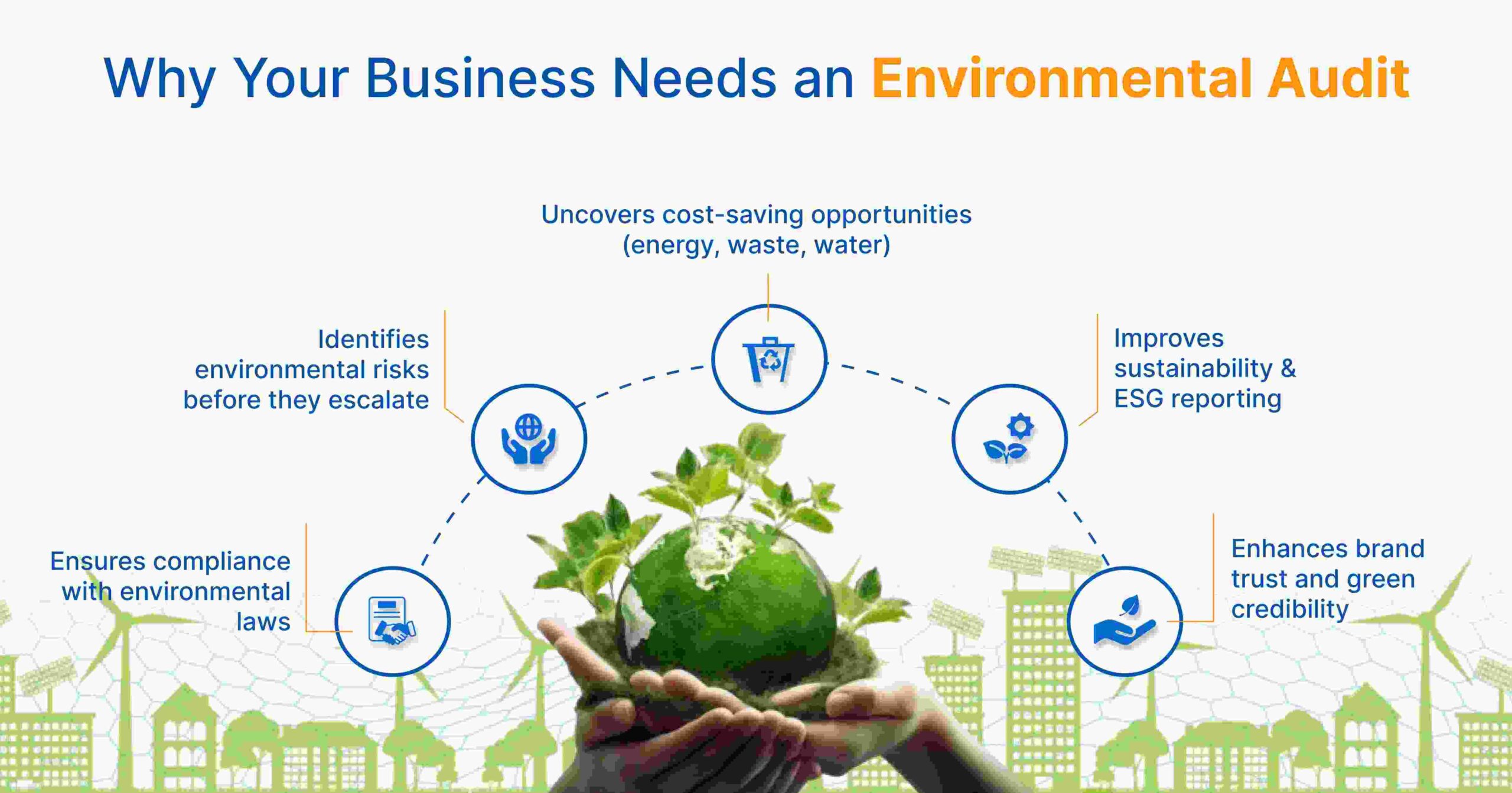Environmental audits are vital for businesses, helping them ensure compliance with regulations, identify potential risks and liabilities, and show a commitment to sustainability.

1. Ensuring Compliance
Audits help businesses understand and adhere to current environmental laws while also anticipating future standards, preventing both immediate fines and future compliance issues.
2. Identifying and Mitigating Risks
Audits help businesses pinpoint potential environmental hazards, like pollution or waste management issues, before they escalate into major problems.
By addressing identified risks, businesses can decrease the likelihood of accidents, environmental damage, and the associated financial and legal repercussions.
3. Enhancing Reputation and Stakeholder Relations
Demonstrating a commitment to environmental responsibility through audits can enhance a company's reputation and build trust with customers, investors, and the public.
A positive environmental record can be a valuable asset, attracting environmentally conscious customers and investors.
4. Improving Operational Efficiency and Cost Savings
Audits can reveal areas where businesses can reduce energy consumption, waste generation, and resource usage, leading to cost savings. For example, an audit might reveal that switching to LED lighting and fixing compressed air leaks could save a manufacturing plant thousands of dollars annually in energy costs.
Identifying and addressing waste management inefficiencies can lower disposal fees and related expenses.
5. Promoting Sustainability
Audits help businesses establish measurable environmental objectives and track their progress toward sustainability goals.
By regularly assessing their environmental performance, businesses can identify areas for ongoing improvement and enhance their sustainability practices.












